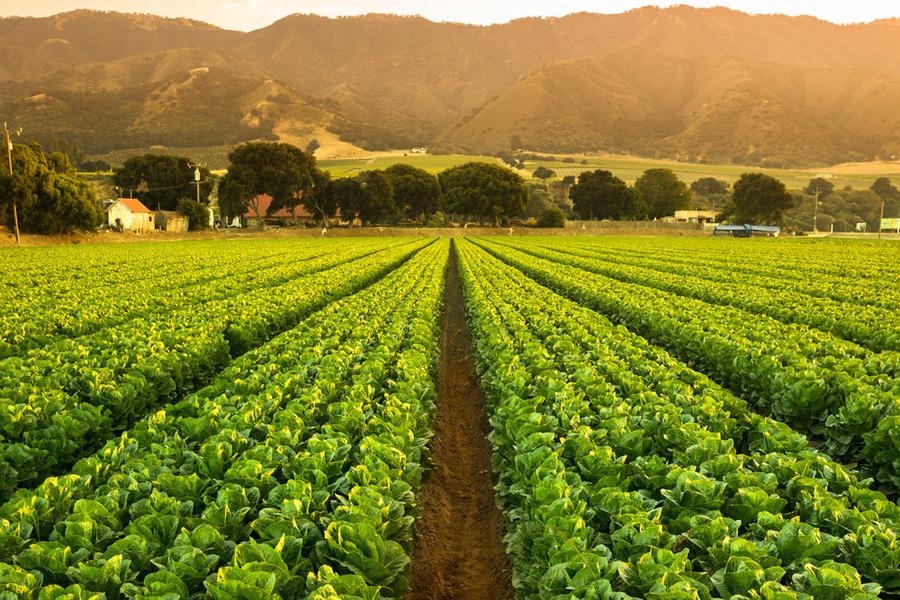May 3 2021
Researchers from the Massachusetts Institute of Technology (MIT), who recently won the Rabobank-MIT Food and Agribusiness Innovation Prize in 2021, got a good indication that their efforts were paying off when a judge offered to have his company associate join them for an early demonstration.
 This year’s Rabobank-MIT Food and Agribusiness Innovation Prize featured innovations to improve sustainability in our food system. Image Credit: MIT.
This year’s Rabobank-MIT Food and Agribusiness Innovation Prize featured innovations to improve sustainability in our food system. Image Credit: MIT.
This offer represented a demand for the researchers’ solution—to say nothing of their opportunities of winning the pitch competition.
Human Dynamics, the MIT-based grand-prize winner of the annual competition, is looking to enhance the sanitation in food production facilities with a robotic drone—a “drobot”—that flies through plants spraying disinfectant and soap. According to the company, the product deals with crucial labor shortages in food production plants, which usually need to perform routine sanitation processes.
They have to sanitize every night, and it’s extremely labor-intensive and expensive.
Tom Okamoto, Co-Founder and Master’s Student in System Design and Management Program, MIT
In the winning pitch, Okamoto added that the average large food producer spends $13 million on sanitation every year. If one combines the time sanitation procedures devoted to production and the delays caused by human errors, Human Dynamics believes that it is addressing an $80 billion issue.
The firm’s prototype utilizes a quadcopter drone that carries a nozzle, a spray hose, and a tank. Below the hood, the drone employs visual detection technology to verify that every region is clean, uses algorithms for route optimization, and applies LIDAR to plot its path.
The product has been developed to automate continuous tasks and, at the same time, complements other cleaning efforts that are presently performed by humans. However, workers will still be needed to handle certain aspects of cleaning and other similar tasks, such as preparing and checking facilities during the sanitation process.
The firm has already designed many proofs of concept, and this summer of 2021, it has planned to conduct a pilot project in association with a local food producer and distributor.
The team from Human Dynamics also comprises Takahiro Nozaki, a researcher from MIT; Julia Chen, a master’s student from MIT; and Mike Mancinelli and Kaz Yoshimaru, students from the Harvard Business School. According to the company, the addressable market for sanitation in food production plants in the nation is $3 billion.
Resourceful won the second prize and the company is aiming to connect sellers and buyers of food waste by-products via an online platform.
According to the company, there is an increasing market for upcycled products produced by firms that are selling things like eyeglasses made from orange peels, building materials made from potato skins, and edible chips made from juice pulp. However, it can be difficult to establish a supply chain for by-products.
Being paid for byproducts should be low-hanging fruit for food manufacturers, but the system is broken. There are tens of millions of pounds of food waste produced in the U.S. every year, and there’s a variety of tech solutions ... enabling this food waste and surplus to be captured by consumers. But there’s virtually nothing in the middle to unlock access to the 10.6 million tons of byproduct waste produced every year.
Kyra Atekwana, Co-Founder and CEO, Resourceful
Atekwana is also an MBA candidate from the University of Chicago’s Booth School of Business. Both sellers and buyers can provide and browse food waste by-products on the subscription-based platform of the company. Businesses can also connect and make contracts via this platform. For every transaction, Resourceful charges a small fee.
At present, the firm is launching pilots in the Chicago area before making a public launch later in 2021. The company has also teamed up with the Upcycled Food Association—a non-profit organization focused on decreasing food waste.
The winners of the pitch competition were selected from a team of seven finalist groups. Other finalists are given below:
- Chicken Haus is a fast-casual, vertically integrated restaurant concept devoted to serving locally sourced, bone-in fried chicken
- Joise Food Technologies is 3D printing the next generation of meat substitutes and other food products using sustainable food ink formulation and 3D biofabrication technology
- Nice Rice is designing a rice substitute made from pea starch, which can be upcycled
- Marble is designing a small-footprint robot to eliminate fat from the surface of meat cuts to obtain optimal yield
- Roofscapes installs accessible wooden platforms to “vegetalize” roofs in dense urban regions to fight climate change and food insecurity
Hosted by the MIT Food and Agriculture Club, this was the sixth year of the event sponsored by Rabobank and MIT’s Abdul Latif Jameel World Water and Food Systems Lab (J-WAFS).